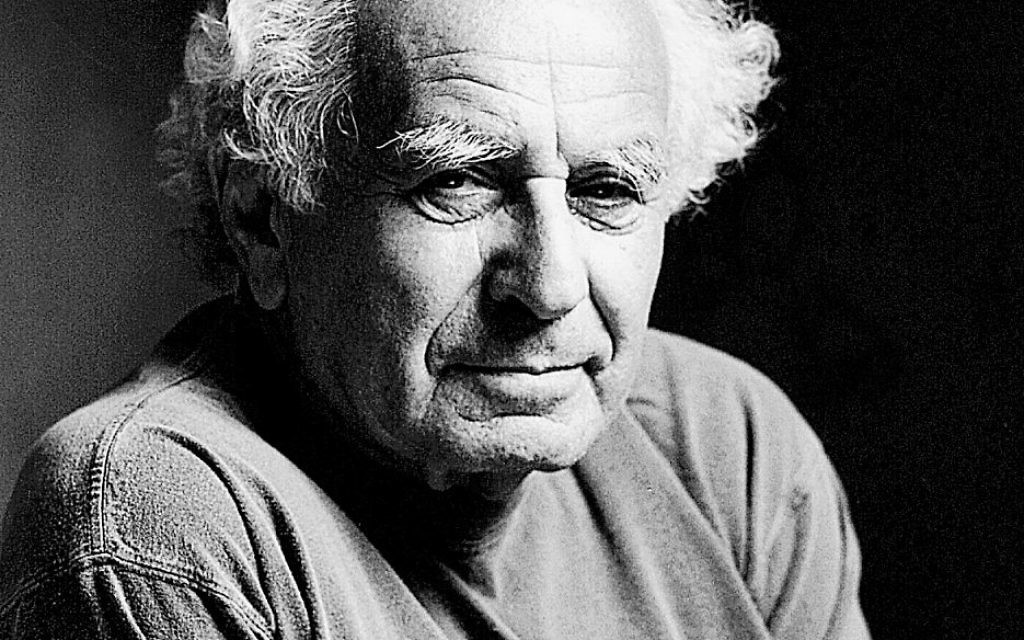Viewing Sages From the Seder Table
One man’s opinion about the choice and obligation to serve in the IDF among the Haredim.
This year I attended two Passover seders, both in my grandchildren’s homes, where I enjoyed transmitting some knowledge I gained over 90 years to my third and fourth generations.
When we came to the story about the rabbis leading a seder all night in Bnei Brak, I told the members of my family and guests that most historians believe that this incident occurred when the rabbis were planning a rebellion against Rome under the leadership of Rabbi Akiva.
In my mind’s eye, I saw them huddled around the table, willing to take the wrath of the mighty Roman army for the sake of freedom. And then I thought of another group of Jews, living now in Jerusalem in Meyah Sherim: the Haredim who refuse to serve in the Israel Defense Forces, whose task is to defend the country from the millions of enemies surrounding it.
Get The AJT Newsletter by email and never miss our top stories Free Sign Up
The refusal to serve in the IDF is not based on ideological pacifism; they are quite ready to pick up stones and hurl them at people who differ from them. How unlike Hillel and most of the sages they are from those who lived in that land 2,000 years ago.
What is it that the haggadah tells us about the evil son: Is he not the one who refuses to join the collective? The rabbis then were not afraid to bear arms in defense of their country and, quite unlike the Haredim, did not seek to be absolved from military duty and from their duty to support family.
When confronted with an issue, I turn to the Mishna Avot, known as the Teachings of Our Fathers, to search the wisdom of our ancient sages. I did the same in this case.
Rabbi Gamliel and Rabbi Judah the Prince are quoted as saying: An excellent thing is the study of Torah combined with a worldly occupation. To them, all work is noble if it is done nobly.
No honest toil, said Rabbi Joseph Hertz, the former chief rabbi of Britain, no matter how hard or repugnant, was deemed by the sages to be beneath the dignity of a scholar. All scholars must guard their independence through work and save themselves from being a burden on others.
The list is long of noted rabbis, the Tanaim and the Emoraim, the scholars in Israel and in Babylon who in addition to scholarship were employed in many ways. Rabbi Hillel was a woodcutter, and Rabbi Shammai, Hillel’s dialectical partner in scholarship, was a builder. Rabbi Joshua and Rabbi Pupa were blacksmiths. Rabbi Yochanan and Rabbi Chanina were shoemakers. Rabbi Hunah was a water carrier. Rabbi Abba was a tailor. Rabbi Gamliel was a rich farmer. Others were ink makers, carpenters, farmers and merchants.
Among later scholars, Maimonides was a physician, and the noted Rashi was a winemaker.
All those rabbis understood that “Talmud Torah” does not exempt them from zeyath apayim — from work. Torah study should not exclude one from his duties toward his family’s welfare through labor.
The Talmud cautions us that he who does not teach his son an occupation is likely to bring up a robber, and Torah study is not an occupation but an obligation. Derech eretz denotes both a worldly occupation and manners, and perhaps both are interrelated. Thus, a person who demands that others to support him becomes a man without manners.
Unlike Christianity, Judaism doesn’t believe in human isolation and the establishment of monasteries where an individual can hide from the world. But even in Christianity, those in the isolation of monasteries and those who wish to renounce all worldly life and reject family life, marriage and procreation still must work.
We the Jewish people believe in marriage and labor. This is the Jewish way: to believe in Torah v’avodah, in which the latter word means work and service to the community’s welfare and our duty to family.
No country, especially a small country like Israel, can afford to have a privileged class — one whose members do not contribute to the welfare of the country but depend on others to defend it and contribute to its needs. The Torah does not exempt any male from being “motley l’tzavah,” and even those who were privileged to depart from Egypt, 600,000 of them, had to defend the freed slaves from an Amalekite attack.
Parasitical life is not the Jewish way, and no one should be able to claim the privilege of being supported, even while doing G-d’s work. Keter Kehunah is gone; we no longer have priests. We should learn because knowledge, as Rabbi Hertz said, leads us to understanding and righteousness.
Of course, it is another matter when one has realized Tevyeh’s dream and become a rich man.
I am reminded that a scant two years after I arrived on the shores of this country, my aunt’s aunt died. While the family sat shiva, the chief rabbi of the city came to the widower and offered to study a certain quantity of Talmud as assurance for a place in the world to come — for a sum of money (paid in advance, of course).
It is time that we cleanse ourselves from this base perspective of making religion a business and declare that, first and foremost, G-d’s demand is independence achieved through labor.





comments